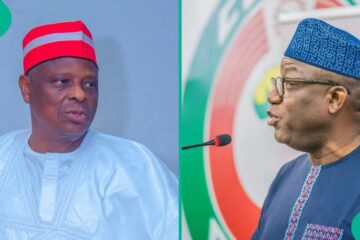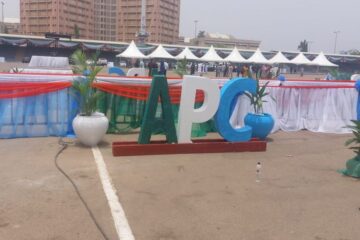
Abimbola Adelakun
By Abimbola Adelakun
On Sunday, a train plying the Warri-Itakpe route derailed somewhere around Ajaokuta in Kogi State. About 178 passengers were stranded but, thankfully, they came to no harm as the Nigerian Railway Commission evacuated them. The train service along that route has been shut until they carry out necessary repairs. At the time of writing, there has been no official report on why the train derailed. However, from videos posted on social media, one can attribute the issue to either willful vandalism of the tracks by metal thieves or mechanical failures. Either way, the derailment does not portend well for the country by any reasonable measure. The Warri-Itakpe route started operation in October 2020, a mere 15 months ago. The facilities are supposed to be still too new to experience such mishaps.
The railway is a signature achievement of the Muhammadu Buhari administration. Those trains are the banner the Buhari regime proudly waves in everyone’s faces as proof of their efficacy in the past eight years. They celebrate the railway and credit Buhari’s regime with building “infrastructure.” The Warri-Itakpe line was a project embarked on in 1987. None of the mediocre leaders we have had all through the years could complete it. On that score alone, the present government earned its chest-thumping.
Never mind that the railway is only one form of infrastructure—and which can hardly survive without the concurrent functioning of other categories of infrastructure like education, health, security, urban management, and so on—but they pat their own backs for getting it done. But given the insecurity problem and mechanical failures we have seen recently, I worry whether it will last. The railway project was built through loans that Nigeria has to repay. As things stand, it might just happen that Nigerians would still be paying just the interest on the loans long after the railway project has become moribund.
The Sunday derailment is the latest in the series of disruptions to the railway system since its inauguration recently. The most infamous of the sad events that have happened to those riding those tracks so far remains the Abuja-Kaduna train attack in March 2022 when some gunmen ambushed the train. There is no official figure on the casualties, but about eight people were reportedly killed and another 63 were abducted. The train services were also shut immediately. For months afterward, the families of the victims engaged in a drawn-out negotiation process with the abductors. In a country where some police investigators could spend up to six months lying in wait just so they could arrest a random guy that made a silly comment about the first lady on Twitter, one would expect that the same surveillance system would help the hapless families. In addition to the trauma of their loved one’s abduction, they also had to absorb the pain of haggling with the madmen who committed that heinous crime.
After that Abuja-Kaduna incident, it was only a matter of time before another set of wannabe professional abductors copied the same method. The Abuja-Kaduna abductors walked away with cool cash, and it did not take any soothsaying skills to conclude that kidnapping (and trading) train passengers is lucrative. It was unsurprising that just two weeks ago, another set of gunmen struck again and made off with 30 people from a NRC sub-station in Igueben, Edo State. Thankfully, some of the alleged perpetrators of the recent incident have been arrested. However, every future passenger is potentially vulnerable to copycat attacks.
The security threat and possibilities of metal theft are not the only threat to the railway project. It is also susceptible to internal forces of government corruption and bureaucratic inefficiency. Our corrupt leaders too, who should at least give the project some room to flourish, will award spurious and hyperinflated contracts. For instance, during the exchanges of blame that attended the Abuja-Kaduna abduction incident, we learnt from no less than the transportation minister, Rotimi Amaechi, that he had proposed surveillance equipment to the tune of N3.7bn be installed but was turned down. The Federal Executive Council that denied the contract explained that they did so because the proposal smelled like a fraud.
Only Amaechi can explain how the expensive surveillance equipment he proposed to buy would have stopped the bandits. Why invest in such equipment when the entire country is bedeviled by insecurity? What would it have cost the gunmen who stopped the train with explosives from blowing the so-called surveillance equipment up in Amaechi’s face? That exchange revealed another problem with the whole arrangement: the myopic greed of public officials who will not let the project survive because they see it as merely another means of awarding themselves inflated contracts. The railway business can barely pay for its own operating costs, and you still have to spend heavily on security.
Under ordinary circumstances, the railway project is supposed to be the proud legacy of the Buhari regime. Unfortunately for them—and for everyone as well—that legacy is seriously imperiled by his regime’s other legacies of multidimensional poverty, insecurity, and corruption.
The legacies of deepening poverty under Buhari haunt the legacies of the trains he managed to get running. Even if the projects do not suffer from a paucity of funds, they will still confront the proclivities of thieving Nigerians who will steal the railway metal to resell. Similarly, the legacy of insecurity through the activities of bandits, herdsmen, and professional abductors will also contribute their own share of damage to the “infrastructure” they said they have built. These are not simple problems that can be solved by stationing security officers at train stations or committing more money to railway station surveillance. They are fundamental issues of poverty. This is the inevitable fallout of an economy configured to consume—and degenerate—rather than produce—and regenerate.
The legacies of Buhari remind you of Ouroboros, the mythological snake that eats its own tail. The many things that Buhari has left undone will consume the very few things he managed to get done. The problem of human development he never committed himself to properly tackling will wipe off the superficial gains we made under him. You cannot have a country where people fell down the economic ladder so badly and expect people to give a bleep about preserving the railway as their national heritage. Your society cannot be overrun by thousands of children who have dropped out of school and assume they will be enamored by the trains enough to want to see it survive.
At the end of the day, the best legacy a leader can leave is to build people well enough to build their society. That did not happen in the past eight years. This government took everything from us—our time, our resources, and hope—and gave us some tokens in return. Many of them will not outlast him. Buhari will, of course, return to Daura with shoulders hunched up while thinking he at least gave Nigeria a railway system. But if there is something we all know by now, it is that Buhari is not a man given to critical self-reflection and honest self-appraisals. He will never think of the railway project’s failure as his. The best he will do is blame it on the “lazy youths” and go back to picking his teeth. Far be it from him to admit that the children he failed to build are the ones selling off the house of lies he built.
Culled from The Punch











